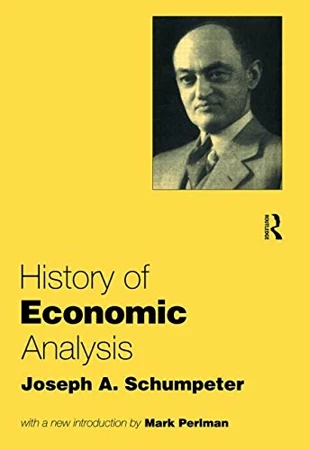History of Economic Analysis

Blurb
At the time of his death in 1950, Joseph Schumpeter was working on his monumental History of Economic Analysis. Unprecedented in scope, the book was to provide a complete history of economic theory from Ancient Greece to the end of the Second World War. A major contribution to the history of ideas as well as to economics, History of Economic Analysis rapidly gained a reputation as a unique and classic work. As well being an economist, Schumpeter was a gifted mathematician, historian, philosopher and psychologist, and this is reflected in the polymath nature of his great endeavour. Topics addressed include the techniques of economic analysis, contemporaneous developments in other sciences and the sociology of economics. This inclusiveness extends to the periods and individuals who figure in the book. As well as dealing with all of the major economists from Adam Smith to Maynard Keynes, the book considers the economic writings of Plato and Aristotle, of the Medieval Scholastics and of the major European economists. Throughout, Schumpeter perceived economics as a human science and this is reflected in a volume which is lucid and insightful throughout.
Comment from our editors:
In his late years Joseph Schumpeter worked extensively on various manuscripts developing a profound history of economic analysis. Although it remained unfinished, his spouse put together a publishable version of this unprecedented project. It provides a substantial contextualisation of economic ideas from ancient through to modern times not withholding any presumptions and without ideological bias. Its focus lies in sketching out the development of various schools of empirical analysis by relating to their respective theoretical claims, merits and validity. Schumpeter's last affair of the heart has become a timeless, classic reference book for those interested in the origins of economics. Unfortunately it has largely been forgotten despite the fact that many insights in this work may and should still be relevant in today's economic debates.

